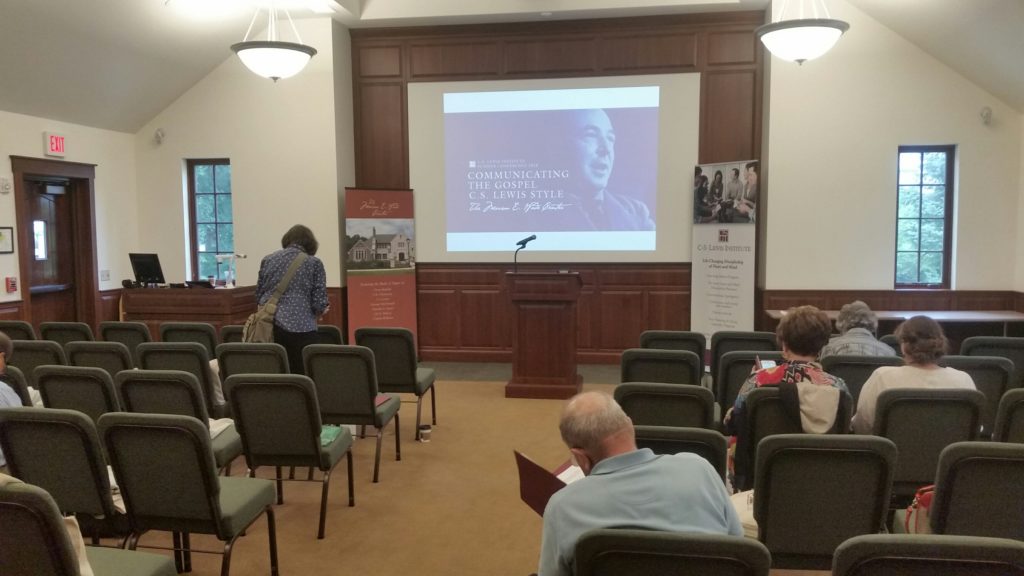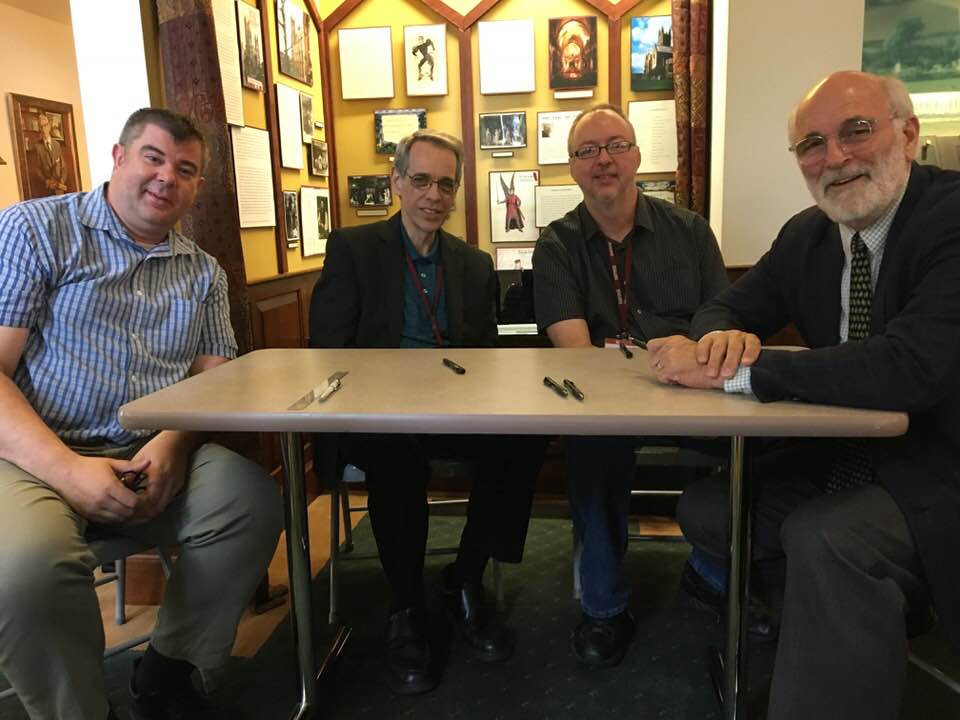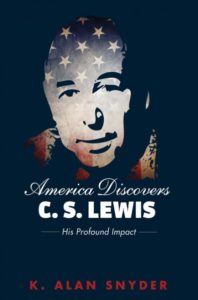The C. S. Lewis conference I attended last week, sponsored by the C. S. Lewis Institute (CSLI) and held at Wheaton College’s Marion E. Wade Center, was a thoughtful, challenging event. The theme was how to communicate the Gospel with guidance from the writings of Lewis that show how he did it.
I hadn’t been back to the Wade Center since 2014, when I first investigated whether anyone had written extensively on Lewis’s contacts with Americans and why America was more receptive to his works than his native Britain. I did come up with a book about that, as many of you know (I’ll come back to that later in this post).
Since 2014, the Center has added this very nice auditorium, which now allows conferences such as this one to be held at the very place where all of Lewis’s (and the six other British authors highlighted there) papers and books by and about him are housed.

As I noted in a post last week, in the middle of the conference, the main speaker was Dr. Jerry Root of Wheaton College. I offered in my previous post some of the key points he made in his first two sessions. Four sessions followed those.
 What I’d like to do is pull out what I consider to be some of the “nuggets” he gave us in those final sessions. I’ll bullet-point them.
What I’d like to do is pull out what I consider to be some of the “nuggets” he gave us in those final sessions. I’ll bullet-point them.
- Christians need to be clear in the words they speak, sound in the reasoning they use, and convincing in the way they communicate the truth.
- If you’re not awkward in some places in life, you’re probably not growing. God uses those awkward times to move us forward.
- Neither is there real growth in spiritual understanding without employing the imagination.
- Using stories is a method of communicating truth that is as old as language itself. Christians should never shy away from using imagination to tell the Gospel story.
- Reality is always iconoclastic, meaning we need to regularly examine whether we are setting up false idols in our life. If we discover any, they need to be torn down.
- We need God Himself, not our idea of God. We have to continually check to see if we have replaced the real God with a phony version in our minds.
- When dealing with people who claim to be atheists, we need to show them that since they can’t know everything, they can’t really be so certain of their atheism.
- When dealing with people who say they are agnostic, we should help them see that it is inconsistent to say one is dogmatic about one’s agnosticism—you can’t be dogmatic about things you are unsure of.
- There is a type of agnostic who is of the hopeful variety: “I don’t know, but I would like to know”—we should reach out to them.
- Evil isn’t the opposite of good; rather, it’s a perversion of good.
My time there was well spent, not only in those excellent sessions, but also with respect to the new friends I made and contacts with others who are serious about their personal spiritual growth. Some of us who are authors were even given a time to autograph our books.

I also was able to take advantage of free time to do more research in the Reading Room. Lately, my interest has been directed to connecting the dots between Lewis and Dorothy Sayers, another writer whose personal papers and books are a Wade feature.
 I’m going back in October. I’ve been invited to share about my book, America Discovers C. S. Lewis: His Profound Impact. This time I’ll be the one standing at the lectern in the Bakke Auditorium. The goal is to expound on the rationale for the book, what I found in my research, and how it has been received thus far in what I might call “Lewis World.”
I’m going back in October. I’ve been invited to share about my book, America Discovers C. S. Lewis: His Profound Impact. This time I’ll be the one standing at the lectern in the Bakke Auditorium. The goal is to expound on the rationale for the book, what I found in my research, and how it has been received thus far in what I might call “Lewis World.”
For those who might be interested, the date for that presentation is Thursday, October 18, at 7:00 p.m. I hope to see some of you there, especially those within driving distance of Wheaton.
I thank God for the opportunity to attend last week’s conference, and I’m humbled and gratified that I will get to speak this coming October. His grace is more than abundant. We should never question His love for us and His desire to help us become more like Him.
